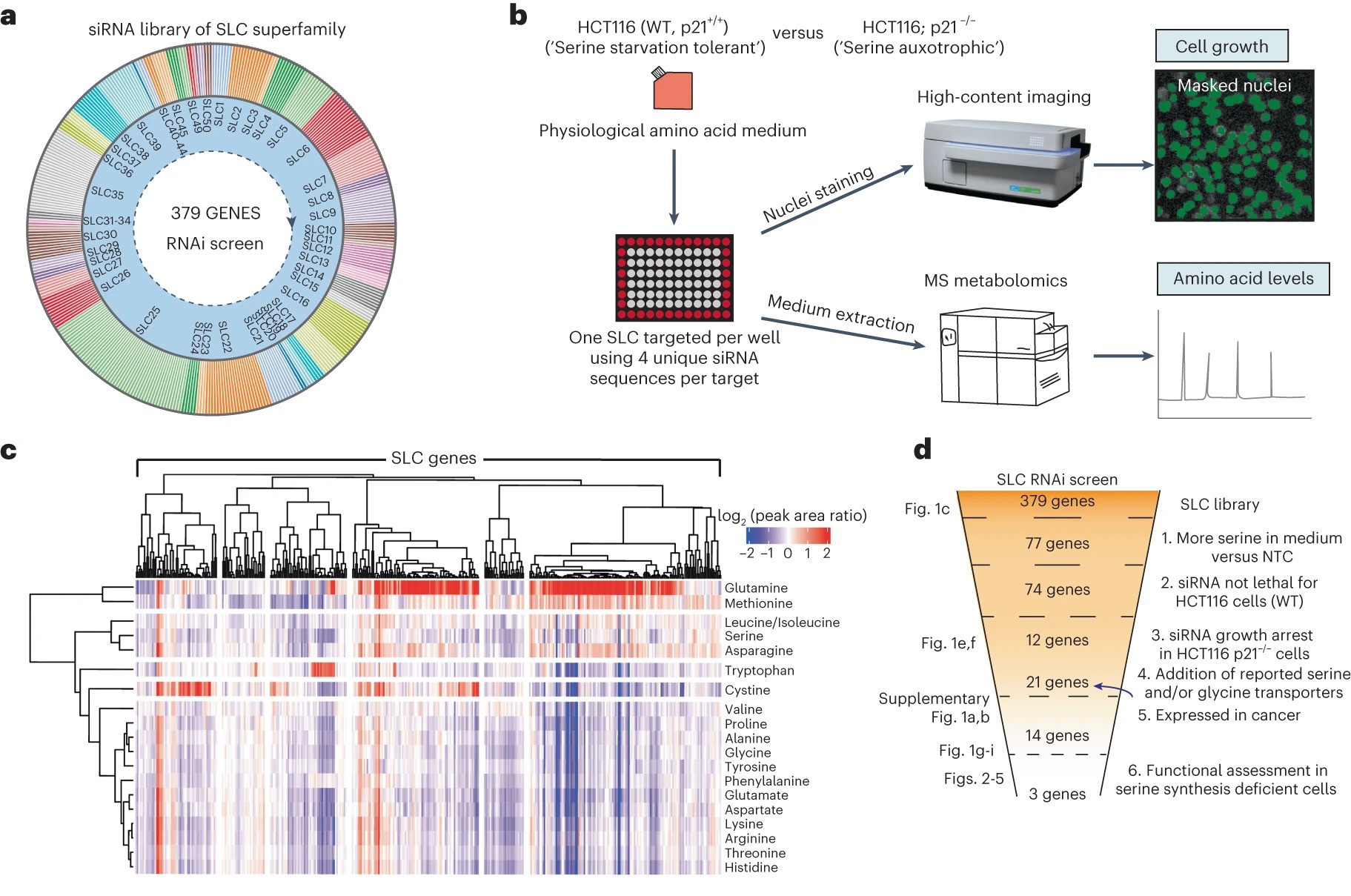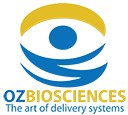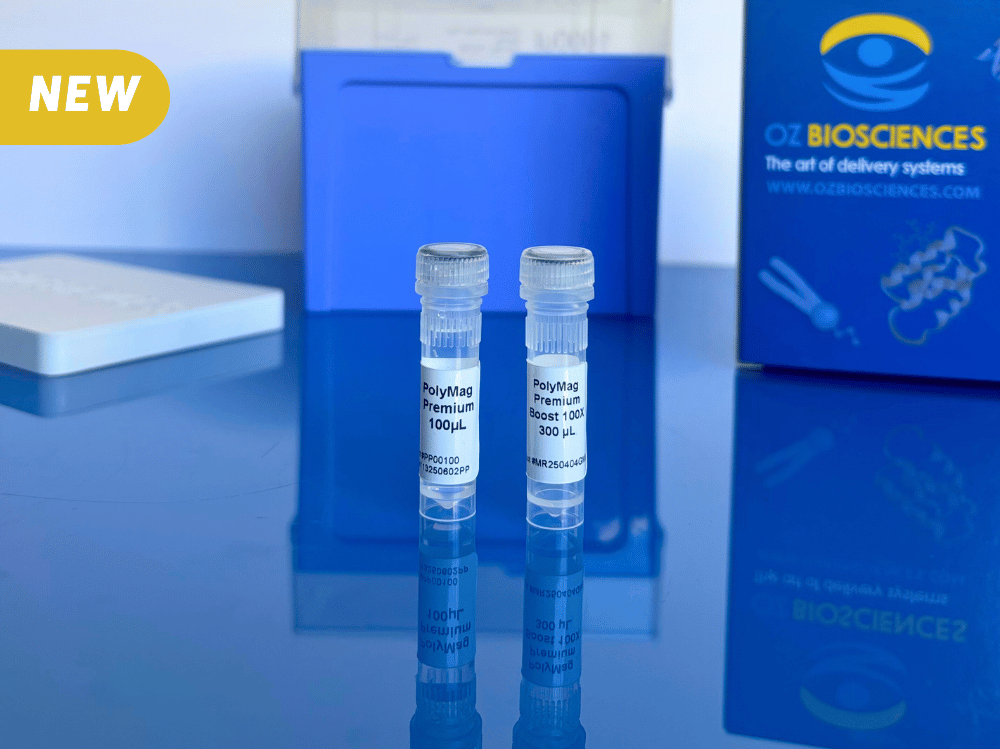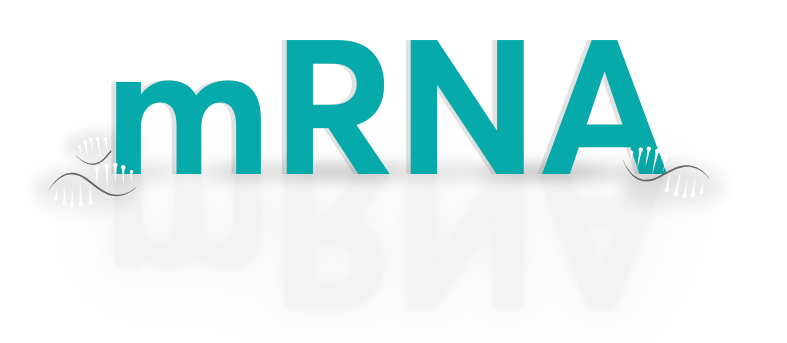BLOG > Publications & Citations > Phenotypic profiling of solute carriers characterizes serine transport in cancer

Authors: Papalazarou, V., Newman, A.C., Huerta-Uribe, A. et al.
Source: Nature Metabolism 5, 2148–2168 (2023)
We are thrilled to share insights from a study titled "Phenotypic profiling of solute carriers characterizes serine transport in cancer" published in Nature Metabolism by Papalazarou, V., Newman, A.C., Huerta-Uribe, A. et al.
"Serine is a vital amino acid in tumorigenesis. While cells can perform de novo serine synthesis, most transformed cells rely on serine uptake to meet their increased biosynthetic requirements. Solute carriers (SLCs), a family of transmembrane nutrient transport proteins, are the gatekeepers of amino acid acquisition and exchange in mammalian cells and are emerging as anticancer therapeutic targets; however, the SLCs that mediate serine transport in cancer cells remain unknown. Here we perform an arrayed RNAi screen of SLC-encoding genes while monitoring amino acid consumption and cell proliferation in colorectal cancer cells using metabolomics and high-throughput imaging. We identify SLC6A14 and SLC25A15 as major cytoplasmic and mitochondrial serine transporters, respectively. We also observe that SLC12A4 facilitates serine uptake. Dual targeting of SLC6A14 and either SLC25A15 or SLC12A4 diminishes serine uptake and growth of colorectal cancer cells in vitro and in vivo, particularly in cells with compromised de novo serine biosynthesis. Our results provide insight into the mechanisms that contribute to serine uptake and intracellular handling."
Congratulations to all authors for this great article.
Our Lullaby Transfection Reagent was used to silence gene expression in HCT116.
Read the paper See our Lullaby







